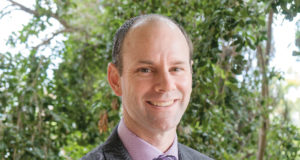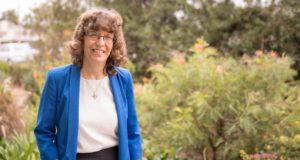That’s us in the corner?
The title of the secular band R.E.M.’s 1991 hit single “Losing my religion” was supposedly taken from a southern United States expression meaning “At my wit’s end”, as if things were going so bad you could lose your faith in God.
So what has this to do with Rev David Baker’s statement that Australia has fallen into the 24/7 commercial carousel by default (“Remember the Sabbath and keep it holy”, October 2016 edition)?
Whilst he is correct, let me go so far as to suggest that the Christian church has not responded well in attempting to arrest that fall. The evolution of the 24/7 cycle was initially slow and not universal, yet in more recent years changes have occurred virtually overnight.
Gone are the days we thought would never end. The generation that knew Sundays as a day of rest have long gone.
The widening gap between worshipping congregational demographics combined with the limited financial, and therefore ministerial resources, means that the church’s presence in the community is limited to one or perhaps two services each Sunday. The building stands as a silent citadel while its people busy themselves with wide and varied pursuits, rubbing shoulders with the passing parade of an increasingly dominant secular society.
So should we have done more to arrest the changes, has it been too easy to conform to the world and leave our religion at the door? The transitions from the “baby boomers” through generations X, Y and Z have not seen an embracing of that “old time religion”.
Rather the “religion” we once held true to has become one of many, sport, celebrities and the phenomenal uptake of relationships via social media. My view is that whilst we have seen “keeping the Sabbath holy” diminish in significance, Christians, including many within the Uniting Church, have seized the opportunities that the 24/7 cycle has created to better relate to the world in which we live.
Now, 25 years since R.E.M.’s hit song, the Christian church is in the corner, in the spotlight and at real risk of losing its religion.
Allan Gibson OAM
Cherrybrook
No permission needed to doubt
In the August 2016 edition, Val Webb says, if I read her correctly, some people wait for something to give them permission to doubt. Not so in my case!
My faith is about 80 per cent belief and 20 per cent unbelief. From studying the stars, planets, marvels of the universe and the human mind which is the most complex in all creation, I have no doubt there is a mind behind creation.
It is very difficult to believe that creation happened by accident. Love, which is the ground of our being, the fundamental building blocks of human relationships, shows to me that this mind is also a mind of love.
Put these together, I have no problem in believing that Jesus, who to me is the greatest man who ever lived for what he said and did, is the embodiment of love, truth and justice and that God intervened in nature to perform the miracles of virgin birth and the bodily resurrection.
To me, these make sense and explains the universe and man in it. No other explanation has satisfied me in my quest for truth.
I still have questions about pain and suffering, tsunamis and earthquakes, salvation outside Christ but the overwhelming evidence for an almighty, loving God is most compelling.
Derrick Fernando
Sunnybank Hills
Safe Ministry matters
I appreciated Rev David Baker’s commitment that the church prevent the sort of child sexual abuse documented by the recent Royal Commission from happening again (“Standing in solidarity for safe ministry” October 2016 edition).
In reading through the testimony compiled by the Commission, it becomes painfully apparent that the violations committed against children in the care of the church could not have continued without the knowledge, complicity and silence of church ministers and supervisors who were aware of such transgressions but neither intervened nor reported this behaviour to the authorities.
As we take steps to heal the wounds of the past and prevent injuries in the future, I would like to know what measures church leadership will take to interrupt the conspiracy of silence and demand accountability from inert supervisors.
As Edmund Burke reminds us, “All that is necessary for evil to triumph is for good men (and women) to do (and say) nothing.”
Dr Gilbert Bond
Indooroopilly
As I read Rev David Baker’s reference to the Royal Commission, and commitment to Safe Ministry with Children (SMC) (“Standing in solidarity for safe ministry” October 2016 edition), I am prompted to remind congregation members to be vigilant. The SMC approach has been developed on a foundation of evidence from scholars, Royal Commission papers and guiding documents such as the Uniting Church’s National Child Safe Guidelines.
Our aim is to develop a culture of shared guardianship in which the vision and mission of local congregations is supported by the Safe Ministry with Children approach.
Safe Ministry with Children is not just a policy for church councils to adopt—it’s a culture change. Behind the comprehensive suite of resources is relationship-focussed support and two-way communication to develop the capacity of individuals, congregations, presbyteries and the Queensland Synod to work together to achieve our shared goal.
For congregations, this involves screening, training, supporting and supervising people who work with children; planning and delivering appropriate programs; respecting behavioural standards and interrupting, discussing and reporting boundary violations. This is about holding to account and taking personal responsibility to protect the boundaries of
safe ministry.
The SMC policy, processes and tools support congregations to safely enact their vision and mission to minister to families within their communities. The relationship-based approach aims to set things on a right pathway, a fellowship of shared responsibility and right relationships. Will you join the change?
Lynette Drew
Safe Ministry (Children) Administrator
Hervey Bay’s Crossroads
I read the article “Disability, faith and inclusivity” in the October edition. For over 25 years Hervey Bay church has successfully run the Crossroads program for people of any denomination with any type of disability. This is a Uniting Church initiative from many moons ago.
Perhaps in a future edition you may wish to remind readers of this truly worthwhile program which my wife, Meg, and I enjoy monthly. In fact this program helped me on my way to becoming a hospital chaplain.
Rodney Boyce
Kawungan
Grandmotherly advice on the Sabbath
Your feature on “Remember the Sabbath and keep it holy” in the October edition was a timely reminder of what we have lost with Sunday no longer being a day of rest. However, it brought me a poignant memory of my grandmother.
I have been sewing ever since I learned to thread the needle about 65 years ago, but as a very small child, Grandma warned me that “every stitch that is sewn on a Sunday you have to unpick with your nose when you die”.
I must admit I slipped up a bit when I was working and didn’t have a lot of free time, but these days I tend to heed Grandma’s warning, just in case she was right!
Barbara Kavenagh
Buddina
Reflections on partners in ministry
In response to your Partners in Ministry article (August 2016 edition), my experience has been a bit different because of having been a Parliamentary Partner. John was inducted by then moderator of the Uniting Church, Rev Don Whebell, in the Elimbah Church, which is the most northerly congregation in the Moreton Rivers presbytery. He is the first clergy person to have served in the Senate of the Australian Parliament, a big undertaking indeed.
The Parliament tries to keep the partners happy in many different ways. Mrs Tammy Fraser began the Association and it has always been a non party-political group and very welcoming and supportive to all partners.
I was once in a commonwealth car at the gate of the Lodge, but because one lady preferred to use her maiden name, I quickly explained she is married to one of the Queensland senators so she was admitted.
Only once I got lost in Parliament House. My photographic pass allowed me access to some areas not open to the public. Another time I had a rest in a quiet space on a long seat with two telephone books under my head. John’s last night in the Senate was an all-night sitting, and because our furniture was on its way back to Queensland, I slept on the couch in his parliamentary office. That only left room for him on the floor.
What about when my luggage went to Perth instead of Canberra. We had one day of cricket at Manuka with the Prime Minister’s XI. I’ve always been grateful for my times with the Methodist/Uniting wives association. Whenever I see Rev Alan Kidd I always ask him to give Dawn a hug from me.
These are a few of my musing of the time in two partners’ associations.
Marie Woodley
Wamuran
Thinking about eternity
Like others have expressed recently, it is good to see Journey improving. It is a valuable publication and an opportunity to “spread the Good News”. In recent times I have been disappointed in the production and am pleased to see it improving—it can still progress further as the church needs to use the opportunity to extend the message of the Gospel in every way.
I have been very involved in attending both the Methodist and Presbyterian churches for many years and am thankful for the teaching, preaching and messages I have heard.
Recently the subject of “salvation” has come to the fore in bible study and more and more people today need to be thinking and preparing for the question of eternity. Yet many have no idea of what this is all about. We need to hear, read and follow the Bible’s messages.
Ruth Uebergang
Toowoomba
All letters must directly address articles and letters from the previous month’s edition of Journey and be accompanied by the writer’s name and the name of their congregation or suburb of residence. Opinions expressed are only indicative of the individual writer, not their entire congregation. Letters are published at the discretion of the editor, but do not necessarily represent the views of the editor or that of official Uniting Church policy. Letters may be edited for clarity or space, at the discretion of the editor. Letters should be no longer than 150 words. Full submission guidelines for letters to the editor can be found at journeyonline.com.au/submit
 JourneyOnline
JourneyOnline







